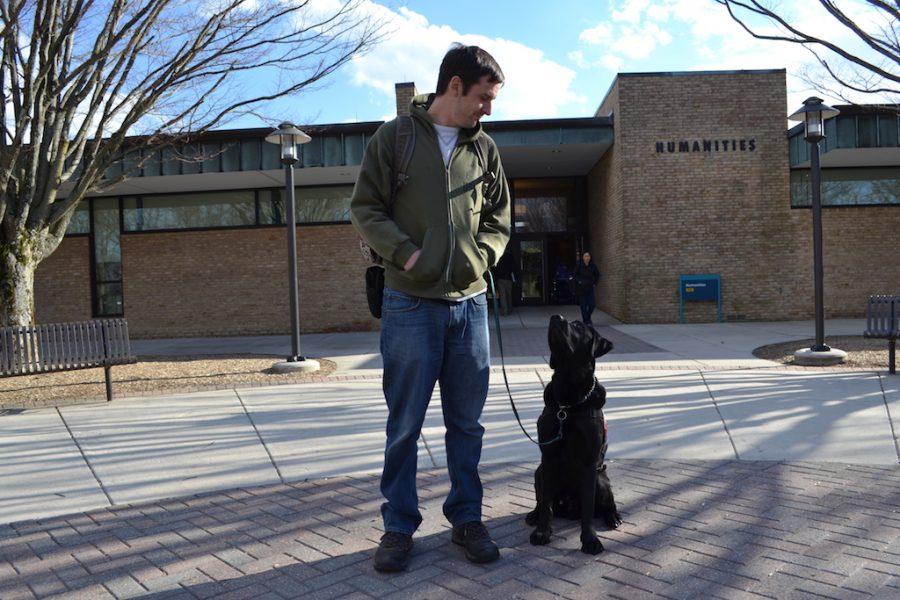Service animal expert informs students on the benefits of veteran service dogs
Service animal experts encourage students to volunteer to raise service animals for veterans. Shown, former journalism student Michael Garvey, a veteran, and his service dog Liberty, on campus in 2017.
February 22, 2021
Talk therapy and companion dogs could help veterans as an alternative to medicine, an expert on service animals told a group of about 60 students last week.
Sarah DelCore, veteran and military service manager for a Boyds, Maryland, organization called Warrior Canine Connections, encouraged the students to volunteer to train service dogs for military veterans. Jones was a speaker at a Psychology Club Event that featured her organization.
“A lot of veterans speak about being on a cocktail of medications and on too many medications, and the side effects of all these medications are not allowing them to go about their every day,” DelCore said. “That’s where mental health providers started saying, ‘Well, what else can we do besides medication? How can we help treat these veterans and others … without over medicating them?’”
Another member of the virtual panel, Warrior Canine Connection founder Rick Yount explained that protecting their “battle buddies” gives active service members an “incredible sense of purpose [in] keeping each other alive.” Losing that when leaving the service can lead to depression, he said.
Service dogs are “able to fill that void a bit,” Yount said.
Volunteers take the dogs into their homes and raise them for two years. Puppy “parents” visit a professional trainer once a week for lessons. Then the volunteers turn the dogs over to the organization for advanced training.
“It’s not like, ‘Here’s a puppy, good luck,’” DelCore said.
Finally, the group matches the trained dogs with veterans who have post-traumatic stress disorder, traumatic brain injuries or other service-related conditions.
Volunteers must be at least 18 and own no other dogs younger than one year.












